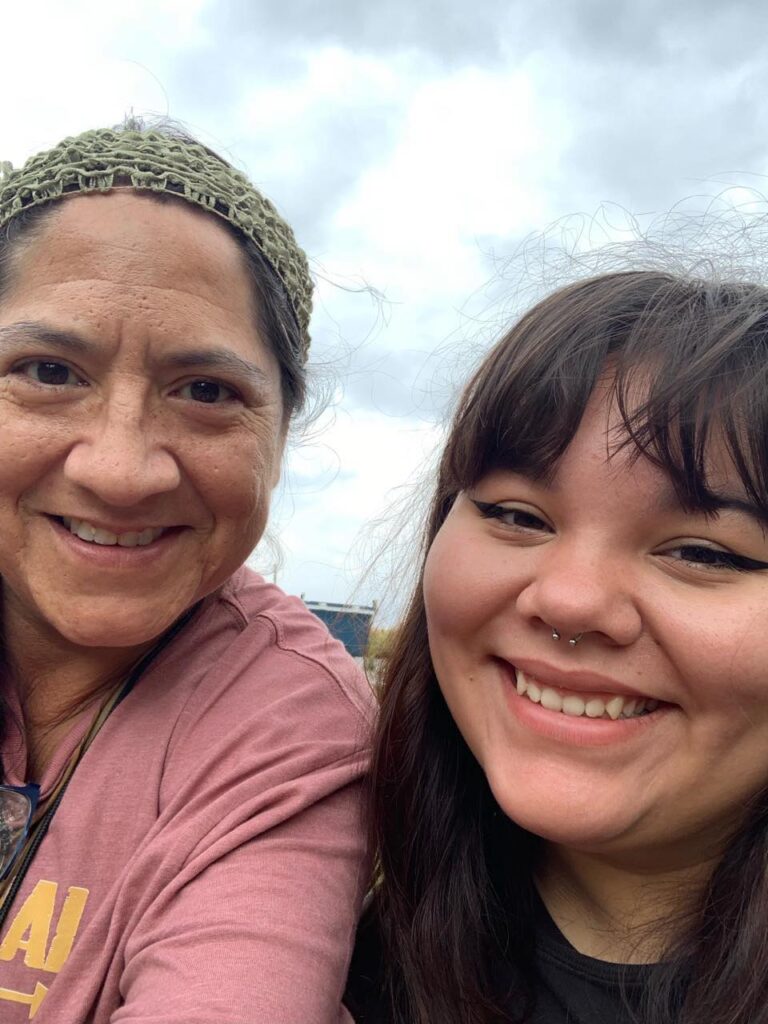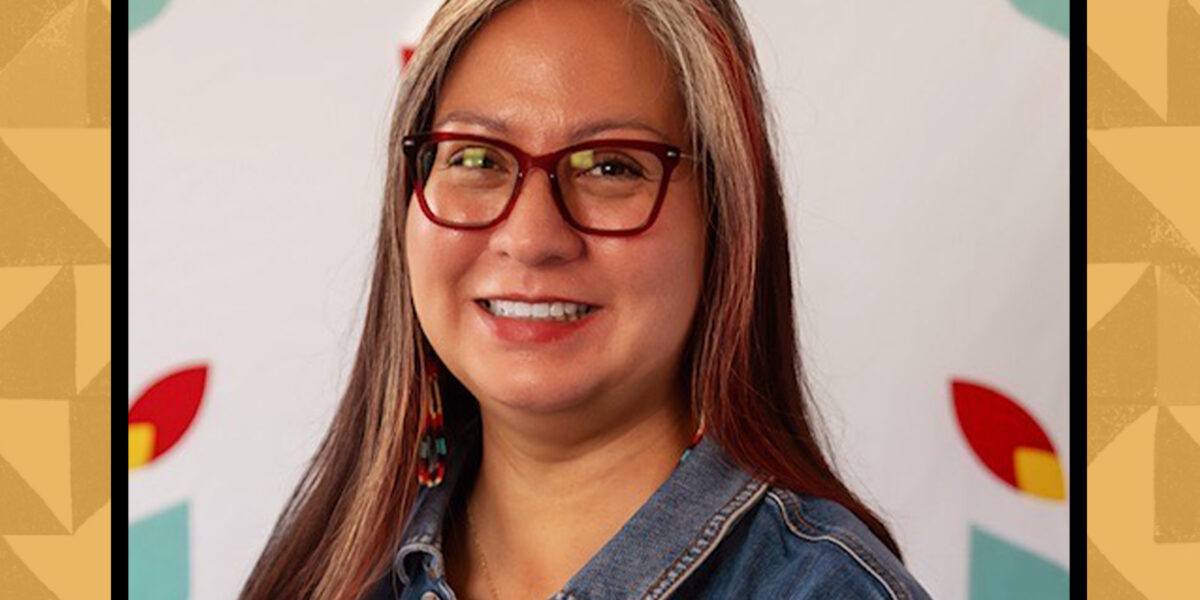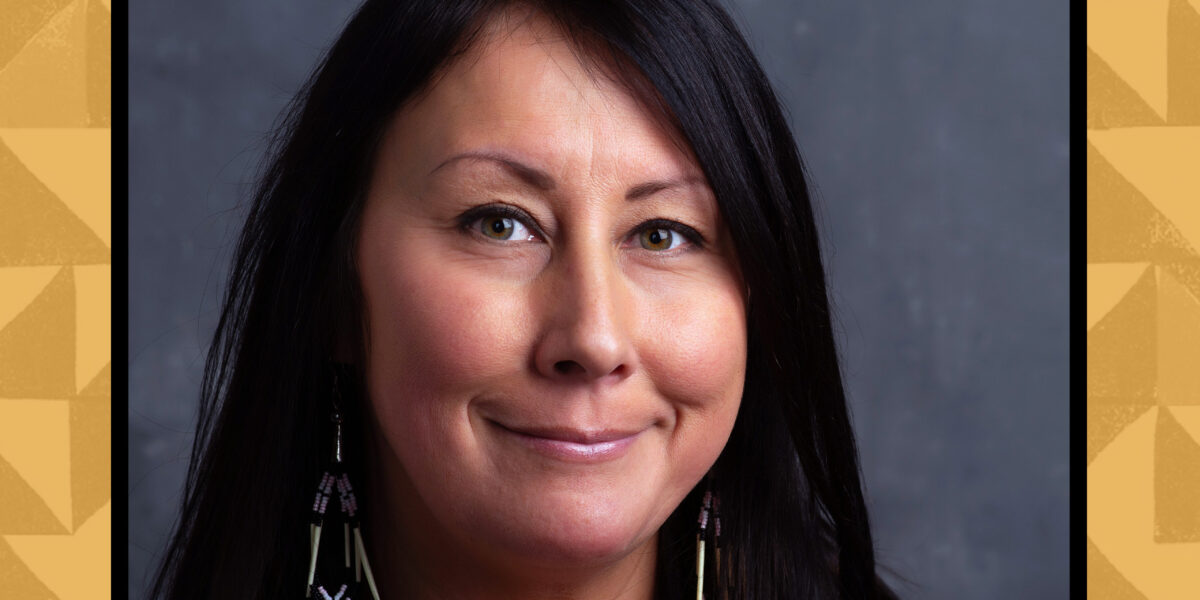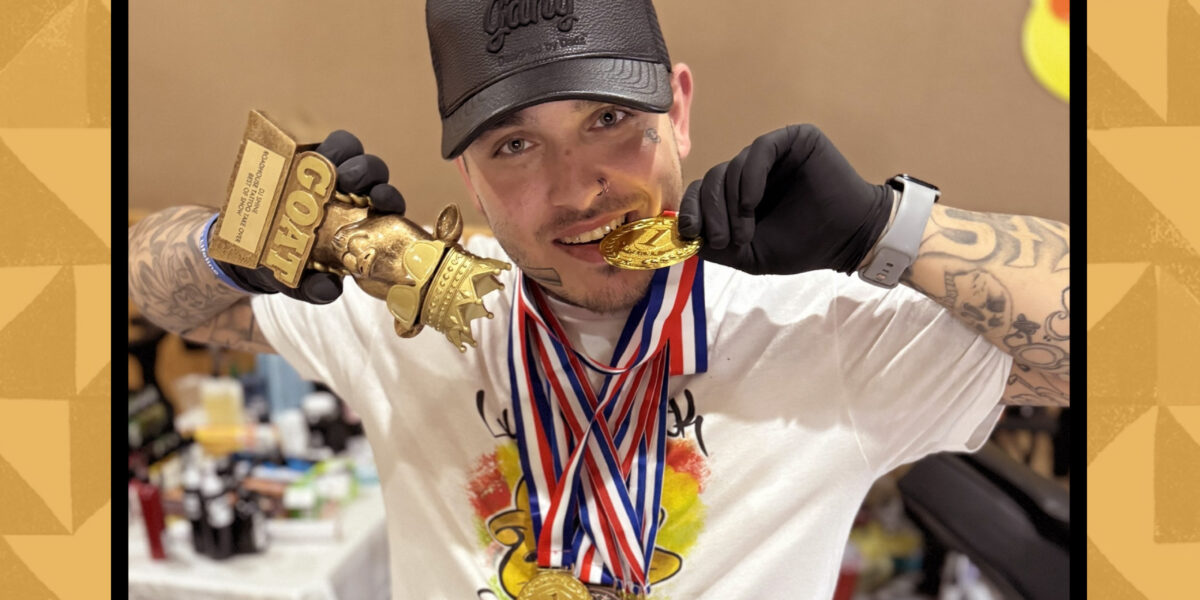
| Sherburne County partnered with St. Cloud State University to offer a chance for Indigenous students to connect with both the land and their heritage. Reporter Chandra Colvin has the story. |
CHANDRA COLVIN: In late September, indigenous students had the chance to connect to mother earth by planting sweetgrass at the Sherburne National Wildlife Refuge. These students are a part of a new program through the St. Cloud State University American Indian Center. This program is known as the Indigenous Learning Community or the ILC. Coordinator Bearpaw Shields, who is both Dakota and Nakota, explains:
BEARPAW SHIELDS: The Indigenous Learning Community was created – this unique program that is grant funded. And it was designed to help, recruit, retain, and graduate our indigenous students. And so part of my role, as well, is to help mentor the students, and to help them succeed through the college role here at St. Cloud State University.
Because a lot of times we get first time students, and it’s really scary. They don’t know a lot about college life. And I want to really help them stay on track, because it’s so easy to fall into the wrong crowd. And then, they don’t end up graduating. So I’m serving here as a mentor, and as a guide, basically a guide, if you want to put it that way.
CHANDRA COLVIN: The ILC provides experiences to indigenous students both inside and outside of the classroom. Students can take culturally relevant classes as a cohort and spend time together in the American Indian Center on campus studying. Bearpaw Shields coordinated the sweet grass planting with Sherburne County’s Park Director.
GINA HUGO: I’m Gina Hugo. I’m the parks director for Sherburne County. And we’re here at the Big Elk Lake Parkland, where we have been working with several Minnesota tribal communities on a cultural landscape co management vision for a sacred landscape that’s in county stewardship right now. And today, we’re out with some amazing St. Cloud State students to expand a sweet grass meadow on the landscape.
CHANDRA COLVIN: Bearpaw Shields explains how this partnership came to be.
BEARPAW SHIELDS: I first met her probably about a few years ago. I was introduced to her because she was working on this property that we planted the sweet grass on. And she wasn’t educated on American Indians. And so I took her underneath my wing, and educated her. And so she you know, talking to her about how there’s not a lot of places for our people to whether it’s harvest sweet grass, or sage or chokecherries or elderberries, things that are people traditionally used as medicines and for ceremonies. And so she then decided, you know what, I think this would be a great idea for this when they’re going to do the park to have the sweet grass. So then our generations can come and harvest sweet grass, and so we can continue to use the medicines that our people have done for many years.
CHANDRA COLVIN: Aria, a part of the Red Lake Tribe is a second-year medical laboratory science student. They share their experience on this opportunity:
ARIA: I decided to come here to kind of connect closer with my culture. I think that being able to plant sweet grass in itself is an amazing experience. And I feel like a lot of Native Americans should be able to have that experience to connect closer with their culture and be able to grow closer as a community in general.
CHANDRA COLVIN: This is the first of several activities that the Indigenous Learning Community students at St. Cloud State University will experience this year. Planned activities include traditional crafts, such as ribbon skirt and shirt making, as well as visits from an Ojibwe elder. For Minnesota Native News, this is Chandra Colvin.
More from Native Lights
- Allison Waukau: Empowering Native Stories Through Community Service and Podcasting
 In this episode, we speak with Allison Waukau (Menominee/Navajo), who serves as the Tribal Liaison and Native Relations Coordinator at the Metropolitan Council. She previously worked at the Hennepin County Library and the Roseville School District as American Indian Community Liaison. Last year, she started a new podcast with Odia Wood-Krueger. Through “Books Are Good Medicine,” the co-hosts explore Native literature with the aim of increasing the knowledge of educators and libraries about Native American books and materials. Allison Waukau lives in Minneapolis with her family, including a young son, and had a dream come true recently when she was selected to participate in Cohort 14 of the Native Governance Center’s Rebuilder Program. Allison’s podcast with Odia Wood-Krueger can be found at Books Are Good Medicine.
In this episode, we speak with Allison Waukau (Menominee/Navajo), who serves as the Tribal Liaison and Native Relations Coordinator at the Metropolitan Council. She previously worked at the Hennepin County Library and the Roseville School District as American Indian Community Liaison. Last year, she started a new podcast with Odia Wood-Krueger. Through “Books Are Good Medicine,” the co-hosts explore Native literature with the aim of increasing the knowledge of educators and libraries about Native American books and materials. Allison Waukau lives in Minneapolis with her family, including a young son, and had a dream come true recently when she was selected to participate in Cohort 14 of the Native Governance Center’s Rebuilder Program. Allison’s podcast with Odia Wood-Krueger can be found at Books Are Good Medicine. - Dr. Amber Annis: Rebuilding Community with the Native Governance Center
 In this episode, we hear from Dr. Amber Annis about the joys and challenges of rebuilding community and finding your voice as a leader. Dr. Amber Annis is a citizen of the Cheyenne River Sioux Tribe and the Executive Director of Native Governance Center. Prior to taking on her role at NGC in December 2024, …
In this episode, we hear from Dr. Amber Annis about the joys and challenges of rebuilding community and finding your voice as a leader. Dr. Amber Annis is a citizen of the Cheyenne River Sioux Tribe and the Executive Director of Native Governance Center. Prior to taking on her role at NGC in December 2024, … - Deven Current: Healing Through the Art of Tattooing
 In this episode, we hear from Deven Current about tattooing, sports and the importance of sobriety, family and faith. Deven is an Ojibwe tattoo artist, who connected with his culture later in life. Deven grew up in the Twin Cities and, at a young age, fell into drug addiction. He ended up incarcerated, but his time …
In this episode, we hear from Deven Current about tattooing, sports and the importance of sobriety, family and faith. Deven is an Ojibwe tattoo artist, who connected with his culture later in life. Deven grew up in the Twin Cities and, at a young age, fell into drug addiction. He ended up incarcerated, but his time …
Subscribe to Minnesota Native News in your favorite podcast app
- New Native Theatre’s 15th Year & REAL IDThis week, how REAL ID requirements impact Indigenous people, especially Two-Spirit individuals. Also, New Native Theatre’s latest play runs April 16-May 4.
- Ziigwan Biidaajimowin (Spring News): NACC Issues Call for Artists and Little Earth Kicks Off American Indian Month with a ParadeThis week, Minneapolis’s Native American Community Clinic (NACC) seeks artists to commission pieces for their new building. Plus, nearby, the Little Earth of United Tribes housing community will kick off May’s American Indian Month with a celebration organized in part by the Minneapolis Public Schools American Indian Youth Council, Ogichida Oyate

 Adrienne Zimiga-January: Bringing more Native Voices to Theaters
Adrienne Zimiga-January: Bringing more Native Voices to Theaters